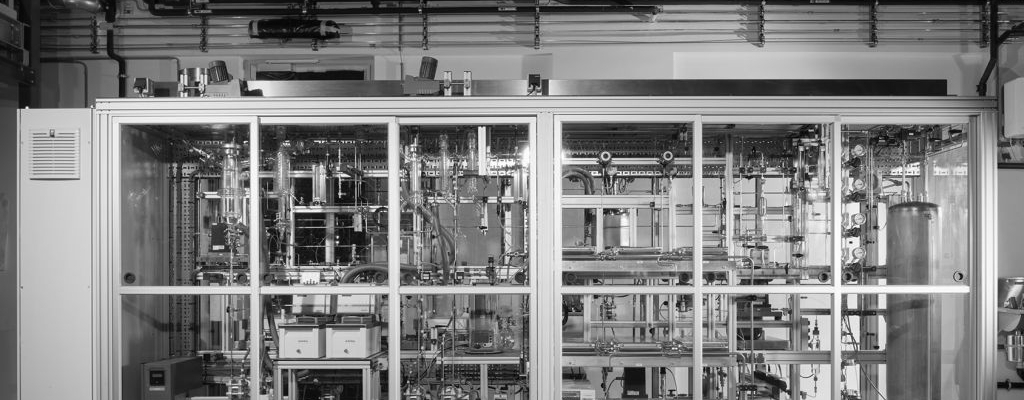
The Chemelot Institute for Science & Technology (InSciTe), a next-generation public-private partnership, celebrates the opening of the doors of the pilot plant facility at Brightlands Chemelot Campus. This multi-purpose facility for scaling up chemical processes enables InSciTe to bring the development and production of new biobased building blocks to the next level.
InSciTe Biobased
Within InSciTe the strengths of industry and academia are bundled by working together on the valorization and commercialization of proven scientific concepts. The biobased program focusses on the development and demonstration of new technologies and processes for the production of “green” biobased building blocks. An important element for success herein is the availability of a suitable scaling up facility that allows testing and validation of processes and technologies that are proven on a laboratory scale. This is a crucial step towards commercialization. The new multi-purpose pilot plant facility at Brightlands Chemelot Campus offers an ideal space where top scientists and entrepreneurs work together to realize and test novel equipment and processes. The Provincie Limburg has contributed € 8.5 million to the cost of the building and the new equipment.
The campus as an open innovation ecosystem
InSciTe and Flowid, a spin off company of the Technical University of Eindhoven, together with invited speakers from Avantium and AkzoNobel share their vision of a future industry with a broader public. This is to mark the inauguration of the first sets of equipment by Twan Beurskens, Regional Minister of Economic Affairs Provincie Limburg. He says: “I am proud to open the doors of this new facility where cutting edge technology of InSciTe and Flowid is made available on Brightlands Chemelot Campus. This is another milestone to strengthen the knowledge economy in Limburg.” Flowid presents to the public the world’s first pilot plant based on its SpinPro technology that will be tested by InSciTe for biobased applications. For InSciTe a set of equipment specifically designed for its LA2AA project is ready to use. “We would like to make adipic acid (AA) a raw material for nylon from levulinic acid (LA), which is made from wood chips. There is a great deal to do before a process capable of making such a product is ready. InSciTe offers us and our partners the unique opportunity to take the project forward to larger scale.” explains Michèle Janssen the project leader from DSM.
Funding for working together on sustainable solutions
The pilot plant is also an important element to further boost the open innovation ecosystem in the €11.3 million OPZuid project “SCeLiO-4B”, with InSciTe as project coordinator. Here InSciTe works together with Biorizon, the Green Chemistry Campus in Bergen op Zoom and other parties (amongst which Flowid and Avantium) to accelerate biobased innovation. The project receives financial support from the European Regional Development Fund (ERDF), the government and the provinces Noord-Brabant and Limburg. The pilot plant facility on Brightlands Chemelot Campus will also play an important role in the recently awarded project “BIO-HArT” of € 6.1 million, with TNO as project coordinator. This project offers great opportunities for InSciTe’s Lignin RICHES project to connect with the Biorizon community and work together with partners in the Netherlands and Flanders. The BIO-HArT project is established by a contribution of the European Interreg V Flanders-The Netherlands program and additional funding of the provinces of North-Brabant, Antwerp, East-Flanders and Flemish-Brabant.
